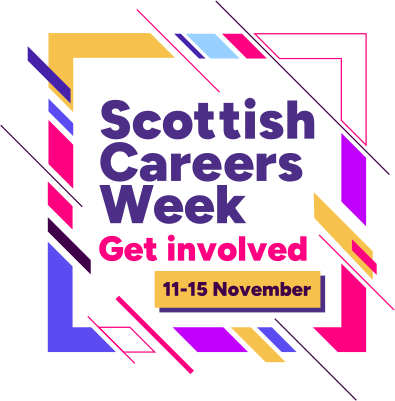 Scottish Careers Week 2024 returns from 11-15 November to shine a light on the career support available to people of all ages across Scotland.
Scottish Careers Week 2024 returns from 11-15 November to shine a light on the career support available to people of all ages across Scotland.
To celebrate it, we share stories from colleagues across NHS Forth Valley on the many and varied opportunities there are available across the organisation.
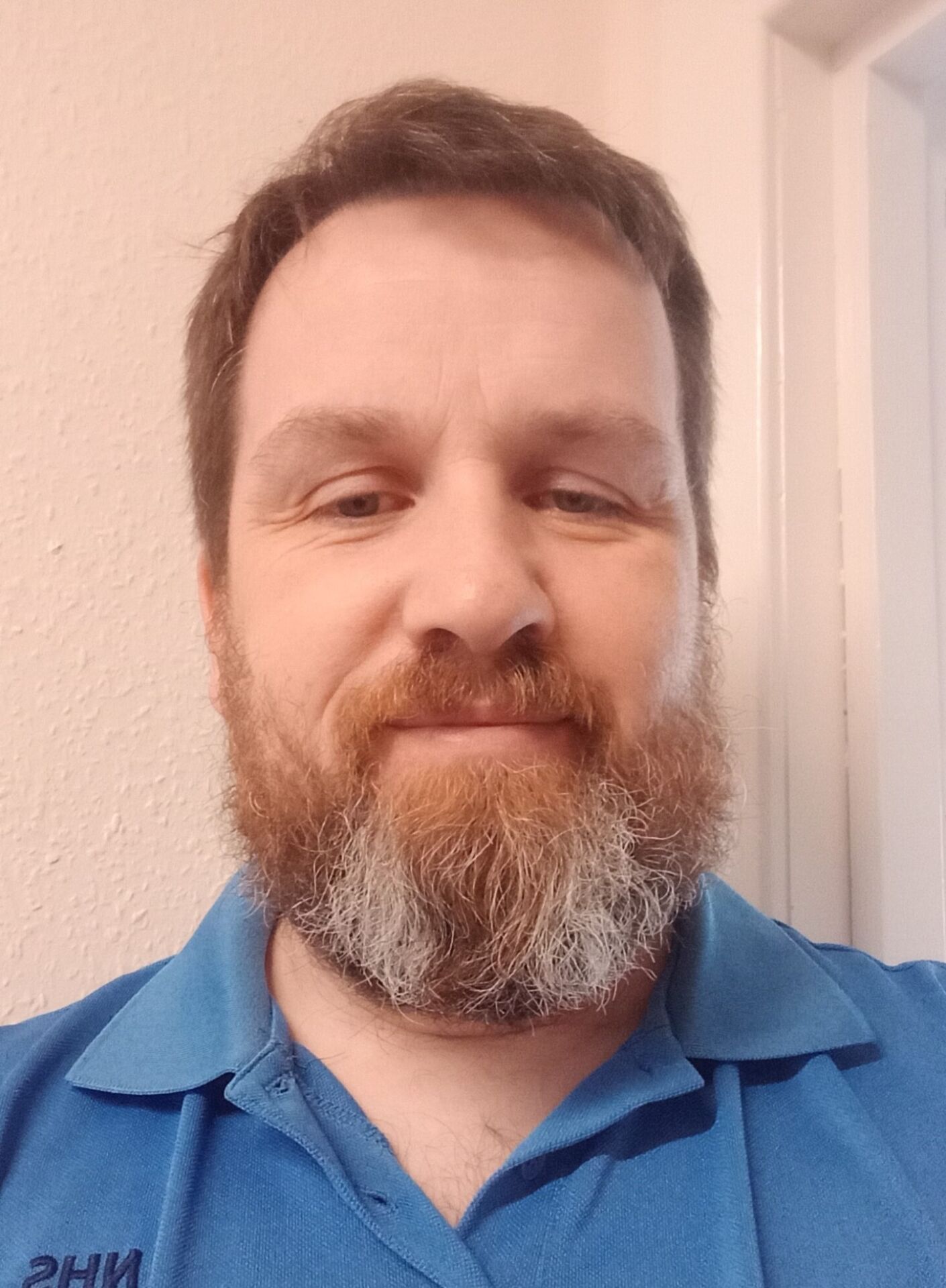 My name is Bryan Grome and I’m a Mental Health Staff Nurse and Management of Violence Aggression Practitioner, based at Stirling Health and Care Village.
My name is Bryan Grome and I’m a Mental Health Staff Nurse and Management of Violence Aggression Practitioner, based at Stirling Health and Care Village.
A typical day for me involves spending time training staff in health and safety, and supporting staff to keep themselves and their patients safe while doing their job.
Lots of people think being a Mental Health Nurse and a Management of Violence and Aggression Practitioner means working with people who are very unwell and very angry, and although this can sometimes be the case, I became a nurse to help people to remain healthy and stay safe.
The best part of my job is when I help someone to maximise their health to its fullest potential; this doesn’t always mean they are cured but they are having their best life at that time.
To become a nurse – mental health or otherwise – you will need to do a degree in nursing, specialising in your chosen branch, so good subjects to take at school include Sciences, English and maths.
I wanted to be a teacher when I left school, however I chose to pursue a career in nursing after becoming a carer for a family member, before getting a job working with people with a learning disability. I now get to teach nurses so I did become a teacher of sorts, I just took a longer road to get there.
To be a successful nurse, I would say you need to be open to change; you might think you want to go one way but life might take you another direction so never be afraid to try new things.
If you would like to work for the NHS, I think it’s important you know that there are lots of opportunities that don’t involve you having a university degree that still allow you to help people.
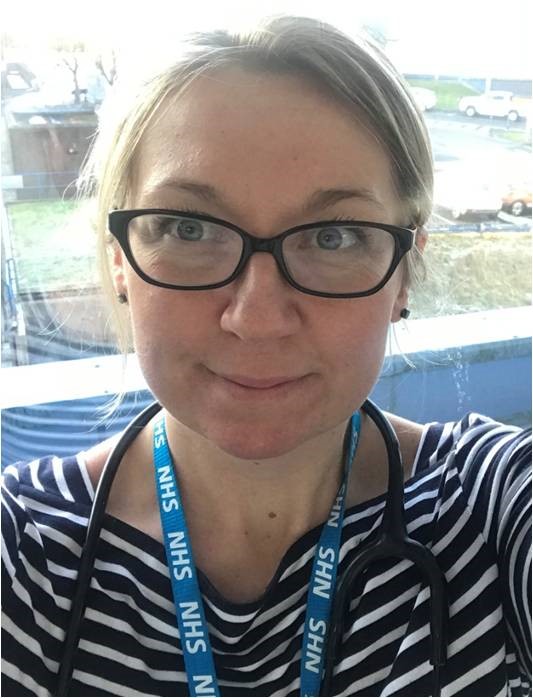 My name is Dr Lindsay Reid and I work as a doctor in Acute Medicine at Forth Valley Royal Hospital.
My name is Dr Lindsay Reid and I work as a doctor in Acute Medicine at Forth Valley Royal Hospital.
This means that I look after patients who become unwell and have to come into hospital for a period of time. I look after adult patients who have problems like heart attacks, strokes, kidney injury or infections.
I don’t look after children (they go to the Paediatricians) or woman who are giving birth (they go to the Obstetricians) or anyone who needs an operation (they go to the surgeons) or anyone with mental health problems (they go to the Psychiatrists).
I care for a real mix of patients, ranging from those who are well enough to go home the same day they come in, to those who are very unwell and need to go to the Intensive Care Unit. The best part of my job is when a patient who has been really unwell gets better and can go home to their family and friends.
My training involved six years at medical school, and then training in lots of different specialities before I focused on Acute Medicine. I also did a research project with the Scottish Government looking at how Acute Medicine is delivered in Scotland which involved visiting 29 hospitals across Scotland. I was also lucky enough to spend a year in New Zealand doing a fellowship.
I have now finished my training and am what is called a consultant. In addition to looking after patients, I have other aspects of my job that I have chosen focus on. I run a teaching programme for our junior doctors and make sure there is a good supply of homemade cake at our teaching session every Thursday! I also work with our team on improving our service to ensure it is the safest it can be for our patients.
If you are interested working for the NHS, then I would encourage you to get involved early to gain some experience and explore what area interests you to train and work in. Good luck!
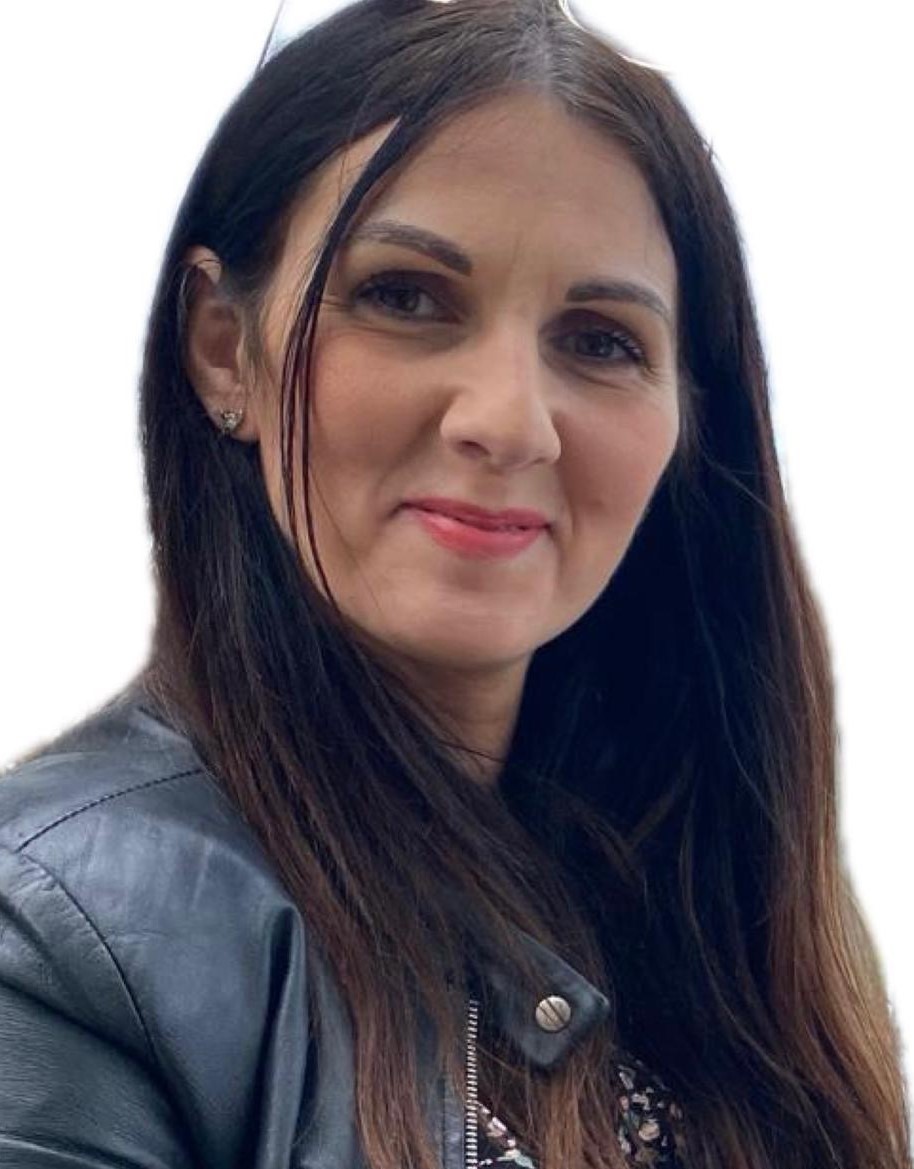 Hi, my name is Lisa Garai and this is my journey as a Multidisciplinary Team (MDT) Coordinator with NHS Forth Valley.
Hi, my name is Lisa Garai and this is my journey as a Multidisciplinary Team (MDT) Coordinator with NHS Forth Valley.
When I started working with NHS Forth Valley, I wanted a job where I could really make a difference in people’s lives. As an MDT Coordinator for Cancer Services, I get to do just that by helping doctors, nurses and specialists work together as a team to make important decisions for patients.
My job is all about being organised, so I manage deadlines and make sure everyone on the team has the right information when they need it. It’s like being the ‘behind-the-scenes’ person who keeps things running smoothly, so the doctors and nurses can focus on giving the best care to patients. This means preparing loads of important details and making sure they’re ready, so the team has everything they need to make the best decisions.
One of the best parts of my job is knowing that what I do actually helps people. It can be challenging, but working with such an amazing team and making a real difference in people’s lives is what keeps me excited about coming to work every day.
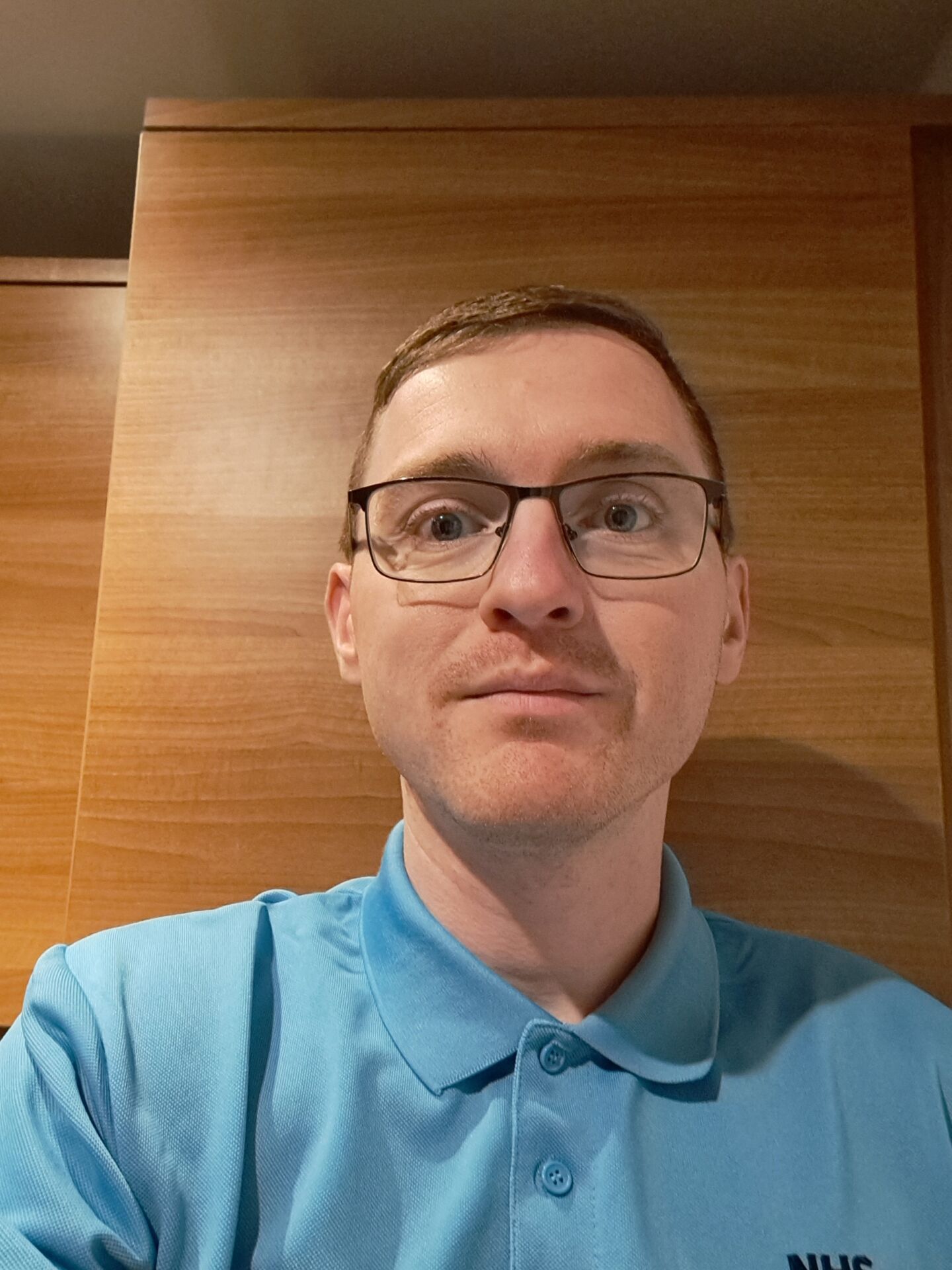 My name is Mark Wilson and I am a Cardiac Physiologist working at Forth Valley Royal Hospital.
My name is Mark Wilson and I am a Cardiac Physiologist working at Forth Valley Royal Hospital.
A typical day for me involves running scans to look at the heart and nearby blood vessels – known as an echocardiogram – on both inpatients and outpatients. My department caters to all ages including young children and new born babies.
Most people haven’t heard of Physiologists, but you can find us in lots of different departments. I specialise in the heart, but there are other Physiologists who specialise in Respiratory (breathing) and Neurology (nervous system). We perform and report a whole host of different investigations, for example in Cardiology we do electrocardiogram to record the electrical signals in the heart, 24 hour monitoring, exercise tests, and we look after people who need or already have pacemakers.
The best part of my job is interacting with the patients, particularly young children and their families. A typical echocardiogram takes up to half an hour so I can spend quite a lot of time chatting to my patients, which I think helps them to feel more relaxed.
To become a Cardiac Physiologist, you need to apply for a training post within the NHS. If successful, you will be put through a three year degree programme while working within a Cardiology department. Once you qualify, you have the opportunity to specialise in pacemakers or echocardiography (this is the path I chose). This involves usually another two years of studying, exams and logbooks to become fully accredited.
If I could go back in time and give my younger self some advice, it would be not to worry about not knowing what I wanted to do for a career. I didn’t know what I wanted to do, I admit I got very lucky when I ended up in Cardiology, but that didn’t happen until I was 26. There is no time limit on finding a job you love, so take your time and recognise that there are so many different career options out there.
If you are interested in working for the NHS, it’s important to realise that not every job in the NHS needs a degree. Every department, including mine, has vital support staff who work closely with patients and help keep the department running. I have also worked with colleagues who started out as porters and catering assistants who are now performing ultrasounds. Once you’re working in the NHS, there are plenty of support and opportunities to progress both personally and professionally.
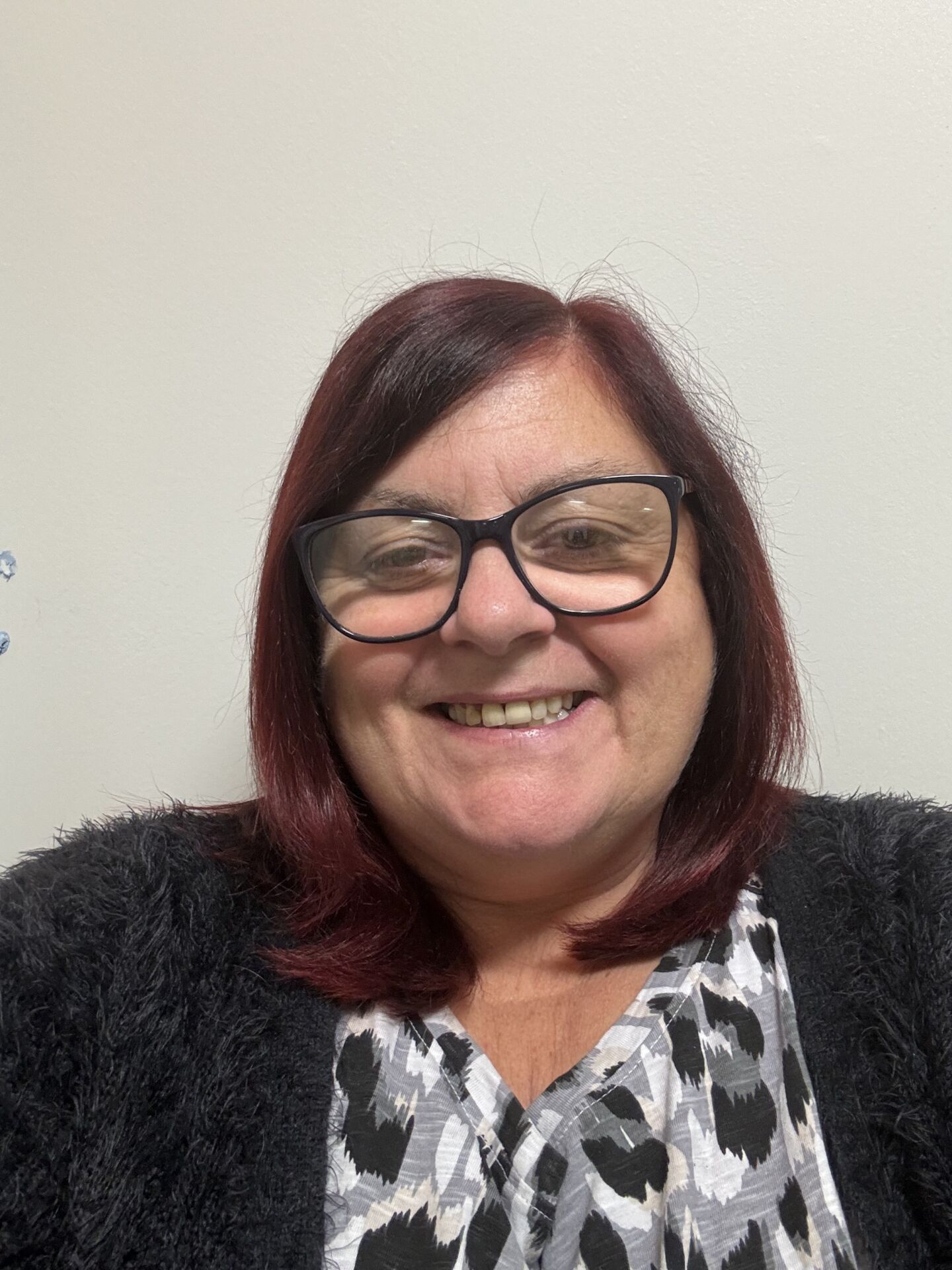 My name is Rona and I am an Allied Health Professional (AHP) Administrator for the Acute Inpatient Physiotherapy Department.
My name is Rona and I am an Allied Health Professional (AHP) Administrator for the Acute Inpatient Physiotherapy Department.
My pathway into my job was quite different to others as I moved from a clinical role to an administrative role due to health reasons. I was very apprehensive at first not knowing if I could do the job as the systems used were all systems I had never used before and it was all new learning for me. This was very challenging but also very rewarding and now I love my job.
My job involves dealing with Annual Leave, Parental Leave and Special Leave requests for staff, inputting staffs hours into our Scottish Standard Time System and recording staff attendance and absences so staff receive the correct salary. My role also involves the ordering of walking aids for the Physiotherapy Department – Inpatient Physiotherapy is a 24/7 service and I organise the on-call rota for staff. I also assist with recruitment, arranging interviews and making interview packs and questions whilst updating the Job Train site at all stages.
The best part of my job is having a good working relationship with my colleagues.
If I was to go back in time, the best advice I would give to my younger self is if you want to do something, go for it. Don’t think “I could never do that so I won’t apply” as if you really want to, you can put your mind to anything. From a young age, I wanted to work in an operating theatre but never did it until later in life, simply because I never thought I could do it, when I absolutely could.
The advice I would give to someone interested in working for the NHS is to stay open minded to opportunities and look into all aspects of the NHS area you are interested in.
 I didn’t always know I wanted to be a clinical pharmacist in mental health, it was more of a gradual realisation. I’ve always had a passion for healthcare, but it wasn’t until I started working with mental health patients that I truly understood the impact that personalised pharmaceutical care can have. Seeing how the right medications can drastically improve someone’s quality of life was eye-opening.
I didn’t always know I wanted to be a clinical pharmacist in mental health, it was more of a gradual realisation. I’ve always had a passion for healthcare, but it wasn’t until I started working with mental health patients that I truly understood the impact that personalised pharmaceutical care can have. Seeing how the right medications can drastically improve someone’s quality of life was eye-opening.
The best part of my job is being able to work closely with both patients and a multidisciplinary team. In mental health, treatment isn’t just about medications; it’s about looking at the bigger picture—considering social, emotional, and physical well-being. I enjoy collaborating with nurses, doctors, social workers, and other healthcare professionals to create comprehensive care plans for our patients.
I completed a Master’s degree in Pharmacy, followed by an MSc in Neurosciences and Mental Health, which deepened my understanding of the field. However, you don’t need a specific degree like that to enter this career, you can also become a clinical pharmacist in mental health with specialist training and a genuine interest in the topic. Getting hands-on experience, whether in hospital settings or community work, is key.
If I could go back in time and give advice to my younger self, I’d tell myself to embrace change and always be open to learning. Healthcare is constantly evolving, and you have to adapt. It’s important to stay curious and not be afraid to take on new challenges.
What I’d tell someone who’s interested in working for the NHS would be that working in mental health services is incredibly rewarding, you get to see firsthand how your efforts can make a real difference in people’s lives. It can be challenging at times, but if you’re passionate about helping others and committed to making a positive impact, it’s a deeply fulfilling career.
Working for NHS Forth Valley offers a huge range of opportunities. With hundreds of different careers on offer, there’s a job for you, no matter what your skills, interests or qualifications.
The Forth Valley area has stunning scenery, some of Scotland’s top attractions and amazing history – visit Working In Forth Valley to find out more about the benefits of living and working in this fantastic part of the country which covers the Stirling, Falkirk and Clackmannanshire council areas. If you are new to the area we have some useful information on Finding Accommodation in Forth Valley.

